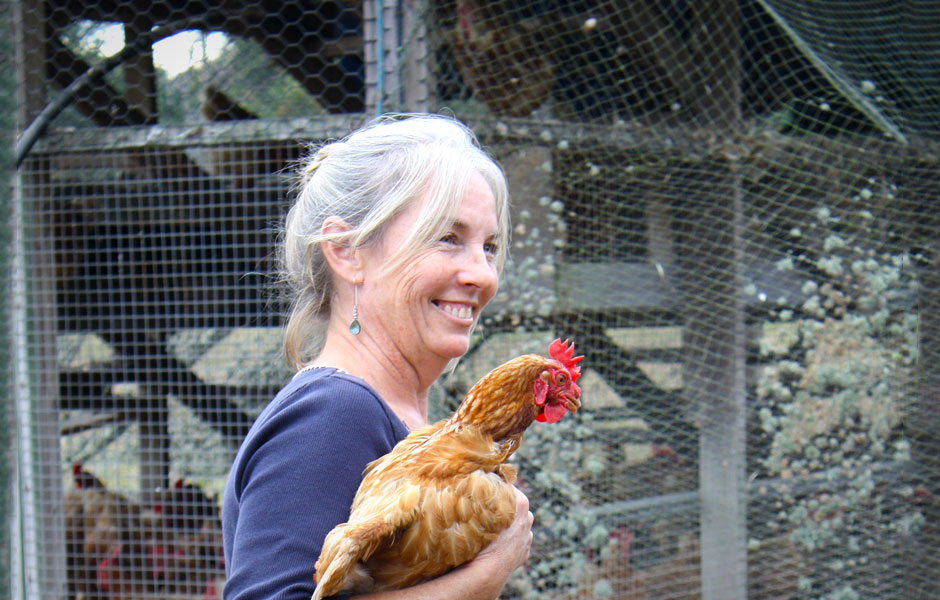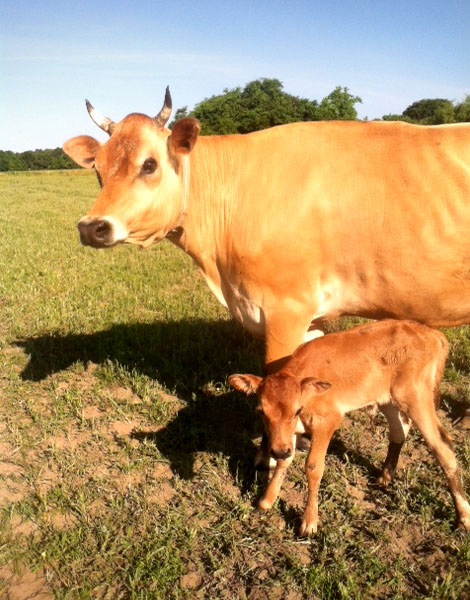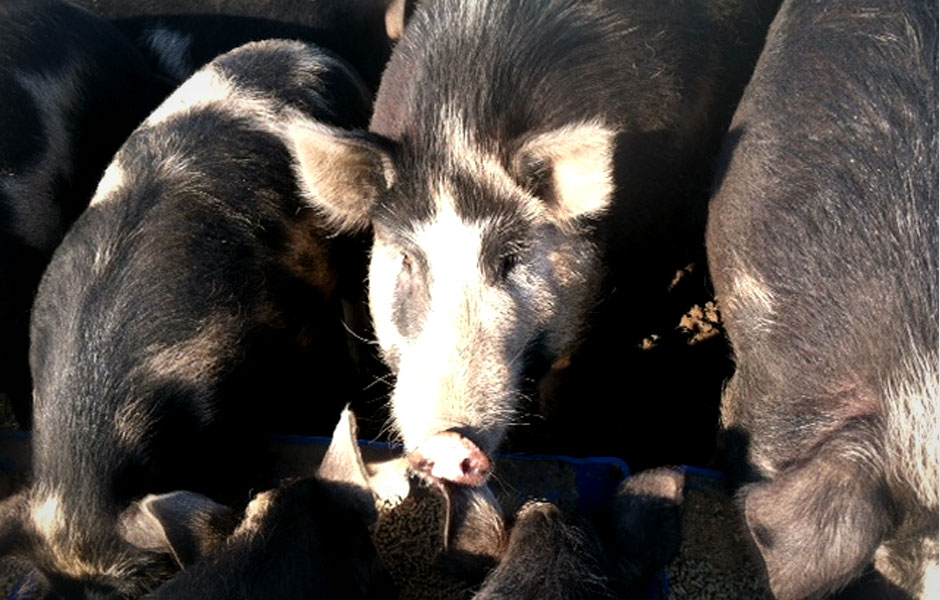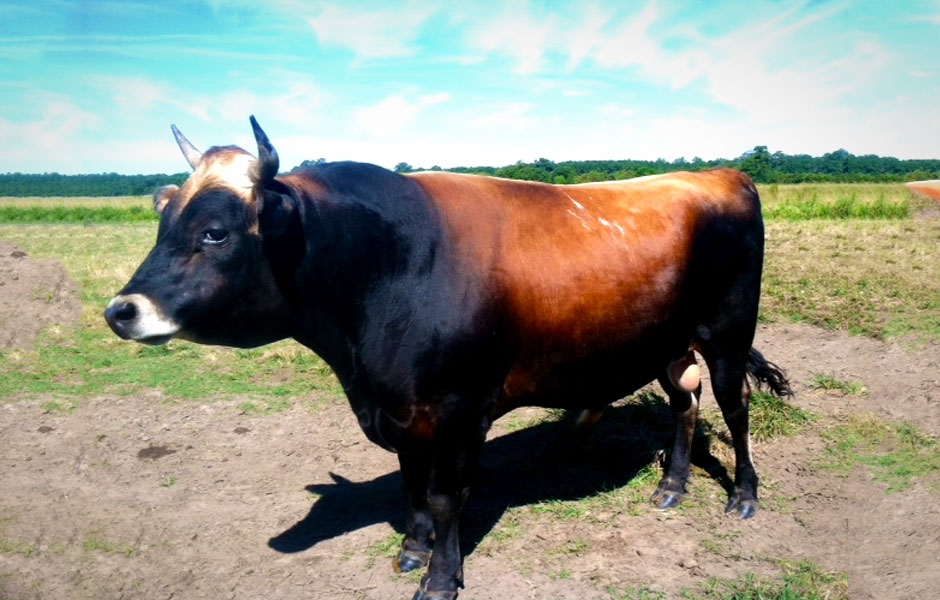For our second November installment on farming, we speak to Celeste Albers, who raises heritage breed hogs and cows. Heritage breeds are a hot topic these days. Like heirloom vegetables, heritage breed animals are rare breeds that are sought after for their history, adaptation and of course taste. Farmers around the country are raising animals with names like Pineywoods cattle, Muscovy ducks and Baylis goats, names familiar to Spanish sailors and George Washington and maybe your grandfather. You won’t find these breeds coming out of factories; they are all farm raised and have a longer lineage than, well than America itself.
Celeste runs the Green Grocer farm out on Wadmalaw Island outside of Charleston, South Carolina. “We were vegetable farmers and I have always been fascinated with heirloom vegetables and grain,” she told us over the phone from the farm. “We used to work a lot with Charleston Gold rice, getting that back into production as well as peas and heirloom corn for making grits.”
Since Celeste was already interested in the history of adaptation and the varieties of vegetables she could grow, it was a natural extension to explore the same with animals. “Heirloom and Heritage seem to have more flavor since they have survived with less manipulation. The vegetables do better with fewer chemicals as do the animals. I liked the idea of saving things that are old and keeping them going,” she explained.
Celeste has been raising Ossabaw hogs and Jersey cows for some time now with great success. Heritage breeds are better as long as the conditions are right for that animal. You won’t want a heritage in a conventional system. They are adapted to the land where they came from. They aren’t as profitable if they are in a conventional factory so when you buy heritage you should be fairly confident they were raised the good old fashioned way. The biggest reason you don’t see more heritage breeds on the market is the lack of federally inspected processing places for small farmers. So when you find someone selling them at your local farmers market, buy up! We promise, you will taste the difference.
Read on as Celeste offers up in-depth information about these amazing creatures:
The Ossabaw Island Hog
This is a hog that was found on an island off of the coast of Georgia. They are of Spanish descent and as the story goes, a Spanish ship wrecked in the area in the 1400’s and the hogs have been breeding on that small island ever since. Another story says the Spanish left them on the island as a food source for other passing ships. There is some debate as to where they were from originally. Some say Iberia but scientists are still trying to figure out their true heritage.
What makes them so special is that they are really fatty, have a long snout, black and white hair and lots of personality. They do very well on the ground: they love to dig around and have high quality meat if they are well fed. They would probably die in a conventional concrete situation. Their meat looks totally different from the pale stuff you see in the grocery store. It is great for curing and amazing for charcuterie.
Jersey Cows
There are only a couple of breeds developed in Europe from the African cow and this breed was developed on the Isle of Jersey in the English Channel. They are small brown cows (think Elsie). The breed of choice for mass milk is Holstein which is a larger cow but Jersey milk is far better.
“We keep our cows on the pasture. We even milk on the pasture and we can sell straight from the cow since we have a permit to sell raw milk for human consumption. We do have to meet stricter guidelines than pasteurized farmers but the milk is so amazing. It has all the enzymes, vitamins and super healthy bacteria humans need in their immune system. Jersey cows make a better quality milk anyway than the Holsteins that bigger farms use. They feed very well on pasture and eat grass and hay and not byproducts.”
Keep a lookout for heritage breeds next time you are shopping for local food! And stay tuned – next week we speak to a chef on how to prepare some heritage breeds in time for Thanksgiving.






